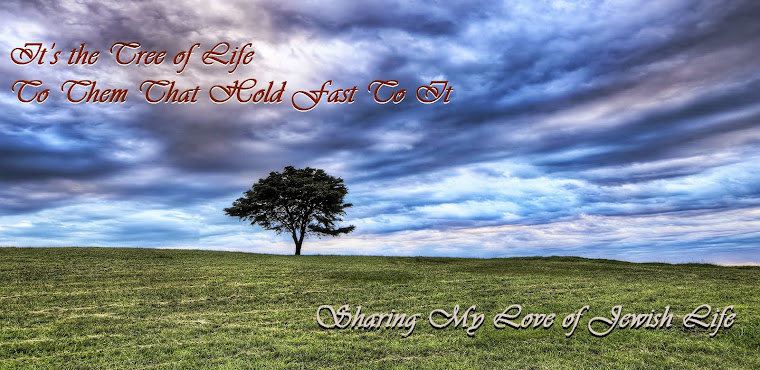The parsha of Nitzavim is always read in the weeks just before Rosh
Hashana, before the time of year when the Jewish people have a focus on
teshuva. It is a parsha that has many connections to the process of teshuva,
most particularly because while there is a reiteration of the dire consequences
from the Jewish people turning away from God’s Torah, there is also a powerful
promise of Hashem’s acceptance of our return.
Each year at this time we are, rightly, flooded with shiurim and shared
thoughts on the importance of teshuva. Some of these are frightening (in a good
way), some of them are notably inspirational, and some seem to carry messages
that are familiar just for how often they are repeated. These are all meant to
power us into action because teshuva, real teshuva, is incredibly hard. Knowing
this, most of us would honestly assess ourselves as being beinonim,
the middling sheep who are eager to be counted among the whole lest our individual aveiros weigh
us down.
So why listen to these shiurim if one is self-aware enough to understand
that proper, full teshuva is the goal we strive for even if we can’t attain it
completely? Because, as is often the case in Jewish life, intention, or perhaps
here mind-frame, has an immense influence on outcome. The very fact that one wants to
do teshuva raises their neshama, and each time one hears a shiur,
reads an essay, or even looks at an inspirational meme, one’s neshama is
moved with a desire to succeed in the process of teshuva.
What does this have to do with parshat Nitzavim? In the third aliya of
the parsha there is a fascinating trio of verses:
Lest there should be among you man or woman, or family or tribe, that
his heart is turned this day from being with the Lord our God, to go to serve
the gods of those nations; lest there be among you a root that bears gall and
wormwood. And it will be in hearing these words [of consequential curses], he
will bless himself in his heart, saying, ‘Peace will be for me, though I walk
in the stubbornness of my heart – that the watered be swept up with the dry.’
The Lord will not be willing to pardon him… (Devarim 29:17-19).
These verses are fascinating, if for no other reason than the inclusion
of gall and wormwood … the watered and the dry. These verses are, in fact,
quite frightening from a 21st century perspective, for some
commentators point out that this is referring those who believe that they will
be favored by God simply for being a Jew even when they reject the Torah and
many of us wrestle so hard today with the influence of secular thought on
our emunah and bitachon.
Reading the commentaries on these verses is actually terrifying, at
least for me! The Ksav Sofer writes: “There are people who violate the
laws of the Torah, and then, to assuage their conscience, say, ‘But I am a Jew
at heart!’ The Torah addresses these people when it says ‘…he will rationalize
and say’ or literally, ‘…he will bless himself in his heart,’ meaning , he will
boast of his ‘good Jewish heart,’ and say, ‘I will have peace, even if I do as
I see fit.’” Rabbi Shimshon Raphael Hirsch who notes that this
person “only goes in the paths, which are ratified, not by God, but by his own
heart.”
Ibn Ezra notes: “The meaning is: ‘all will be well with me, even
though I follow the evil impulses of my heart, because I will survive through
the merit of the righteous; they are many, whereas I am just a single sinner.’” This
commentary is particularly interesting in reflection to the frequently
discussed importance of davening with a minyan during the yomim norayim so
that the tefilos of the individual benoinim can merge together
and no one will be specifically singled out as falling short of being deserving
of forgiveness.
A few weeks ago, the parsha discussed the issue of a bein sorer
umorer, a rebellious son, and many of the commentaries focus on how an
actual case of a bein sorer umorer is impossible. Similarly,
an actual true to fact apikorsis is rare because to be an apikorsis one must be a person who
has studied Torah and Jewish law extensively, someone who understands Jewish
law (halacha) and philosophy but, nevertheless, denies prophecy ever
existed, denies Moses’ status as a prophet, and says that God has no knowledge
of or involvement in human activities.
When Devarim 29 discusses this arrogant person who
sees no wrong in following solely the ways of his/her heart, it sets fairly
specific parameters even in its somewhat enigmatic language. It does not appear
to be referring to a person with questions, hesitancies, or even moments of
contrariness …. all of which are normal and are often referred to as weapons of
the yetzer harah. Rather it refers to a person who takes a very
specific line of thought – and probably a style of living as well – that leads
to a corruption of the ideals of Jewish living.
These
verses serve as a warning about being aware of our underlying motivation and
working on our comprehension of the true importance of observing the mitzvot.
As we head into Rosh Hashana, the day on which we proclaim and revel in God’s
kingship, parshas Nitzavim offers a striking reminder that being avdei
Hashem we do not “walk in the stubbornness of [our] hearts,” but rather accept
the yoke of the Torah even in the quietness of our hearts.
